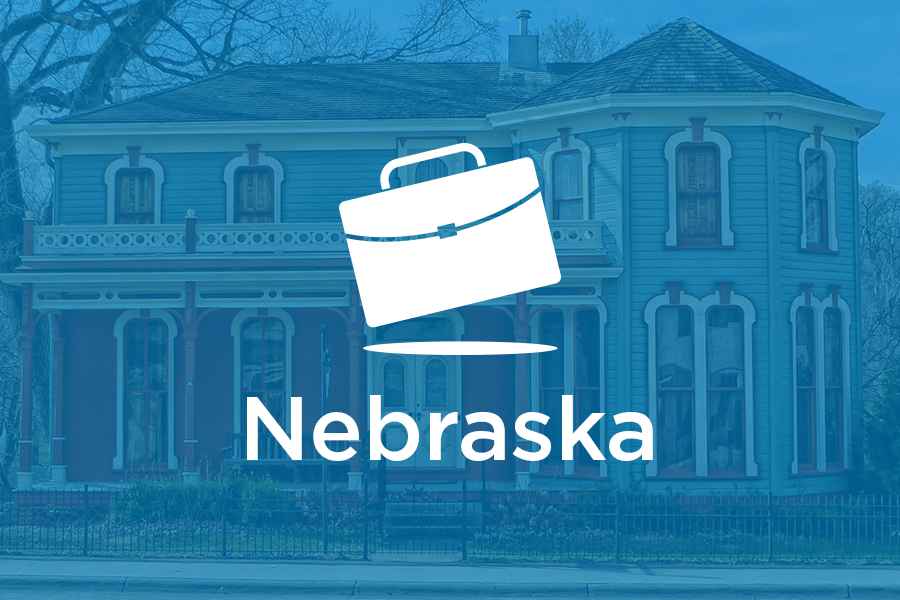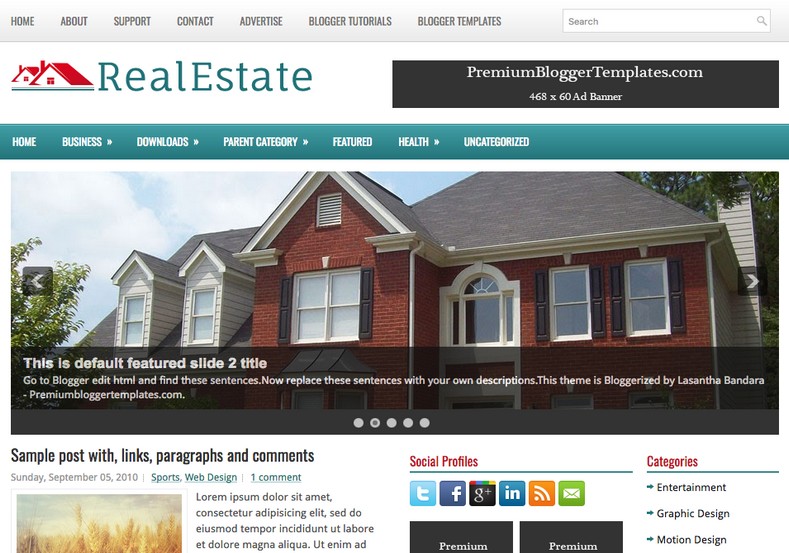
If you're in the market for a new career or looking for the next rung on the ladder, real estate may be a good fit. There are many factors to consider when considering your options. The first is to know what you're getting yourself into.
Although there are many benefits to real estate careers, it's not easy to make your living. Not only will you need to be familiar with the local realty market, but you also need to understand how to set up your business. You'll also need some investments.
You will need a license to get started. While most states do not require much money or time to get a license, you will need some classes. Some states offer correspondence classes. You may be required to attend a classroom. Most importantly, it will take you around 60 hours to earn your real estate licensing.

Real estate is highly competitive. You will need to be able sell your skills and knowledge to potential clients. You will also need to build a solid network to help you grow your list of listings. You will also have to pay fees for the Multiple Listing Service and your local realtor association.
When it comes to deciding if real estate is for you, you have to consider your personal interests and your time commitment. It may be necessary to travel to meet clients and may require you to work weekends in order to make showings. But, if you can handle the challenge, you may enjoy the perks of working for yourself.
There's no guarantee you'll succeed, though. Aside from the usual obstacles like finding a mentor, you'll need to learn the ins and outs of your industry. You will also need to be able to negotiate deals. Real estate agents will have to take care of their clients, which includes paying commissions.
You may find selling your home stressful and difficult. There are many options to help make the selling process less stressful. One way to make it easier is to invest in a larger reserve account. You can reduce some of the stress involved with variable pay arrangements by doing this.

There are several ways that you can be different from the rest. If you want to stand out from the crowd, it might be necessary to think outside your comfort zone when marketing your services. Some agents may not have the same experience, so you may need to be more creative. A smart move is to create a network of family and friends. Having the ability to ask for referrals can be a huge asset.
You must be self-motivated. This is especially important when you're just starting your career. You may earn less than what you anticipated. You'll likely be working for many more years than you think so make sure you have some extra cash for retirement.
FAQ
Can I afford a downpayment to buy a house?
Yes! Yes. These programs include FHA, VA loans or USDA loans as well conventional mortgages. For more information, visit our website.
How can I tell if my house has value?
You may have an asking price too low because your home was not priced correctly. A home that is priced well below its market value may not attract enough buyers. Our free Home Value Report will provide you with information about current market conditions.
How much money do I need to save before buying a home?
It all depends on how many years you plan to remain there. It is important to start saving as soon as you can if you intend to stay there for more than five years. But, if your goal is to move within the next two-years, you don’t have to be too concerned.
Which is better, to rent or buy?
Renting is generally cheaper than buying a home. However, renting is usually cheaper than purchasing a home. Buying a home has its advantages too. You will have greater control of your living arrangements.
What are the benefits of a fixed-rate mortgage?
Fixed-rate mortgages guarantee that the interest rate will remain the same for the duration of the loan. You won't need to worry about rising interest rates. Fixed-rate loan payments have lower interest rates because they are fixed for a certain term.
Statistics
- This means that all of your housing-related expenses each month do not exceed 43% of your monthly income. (fortunebuilders.com)
- The FHA sets its desirable debt-to-income ratio at 43%. (fortunebuilders.com)
- Some experts hypothesize that rates will hit five percent by the second half of 2018, but there has been no official confirmation one way or the other. (fortunebuilders.com)
- Private mortgage insurance may be required for conventional loans when the borrower puts less than 20% down.4 FHA loans are mortgage loans issued by private lenders and backed by the federal government. (investopedia.com)
- Based on your credit scores and other financial details, your lender offers you a 3.5% interest rate on loan. (investopedia.com)
External Links
How To
How to Manage a Property Rental
Renting your home can be a great way to make extra money, but there's a lot to think about before you start. These tips will help you manage your rental property and show you the things to consider before renting your home.
Here are some things you should know if you're thinking of renting your house.
-
What do I need to consider first? Take a look at your financial situation before you decide whether you want to rent your house. You may not be financially able to rent out your house to someone else if you have credit card debts or mortgage payments. Check your budget. If your monthly expenses are not covered by your rent, utilities and insurance, it is a sign that you need to reevaluate your finances. It may not be worth it.
-
How much does it cost for me to rent my house? It is possible to charge a higher price for renting your house if you consider many factors. These include factors such as location, size, condition, and season. Prices vary depending on where you live so it's important that you don't expect the same rates everywhere. Rightmove has found that the average rent price for a London one-bedroom apartment is PS1,400 per mo. This would translate into a total of PS2,800 per calendar year if you rented your entire home. This is a good amount, but you might make significantly less if you let only a portion of your home.
-
Is it worth it. It's always risky to try something new. But if it gives you extra income, why not? Before you sign anything, though, make sure you understand exactly what you're getting yourself into. Your home will be your own private sanctuary. However, renting your home means you won't have to spend as much time with your family. Make sure you've thought through these issues carefully before signing up!
-
Are there benefits? You now know the costs of renting out your house and feel confident in its value. Now, think about the benefits. You have many options to rent your house: you can pay off debt, invest in vacations, save for rainy days, or simply relax from the hustle and bustle of your daily life. It's more fun than working every day, regardless of what you choose. Renting could be a full-time career if you plan properly.
-
How can I find tenants? Once you decide that you want to rent out your property, it is important to properly market it. Make sure to list your property online via websites such as Rightmove. Once potential tenants reach out to you, schedule an interview. This will help to assess their suitability for your home and confirm that they are financially stable.
-
What are the best ways to ensure that I am protected? If you are worried about your home being empty, it is important to make sure you have adequate protection against fire, theft, and damage. You will need to insure the home through your landlord, or directly with an insurer. Your landlord will likely require you to add them on as additional insured. This is to ensure that your property is covered for any damages you cause. However, this doesn't apply if you're living abroad or if your landlord isn't registered with UK insurers. In these cases, you'll need an international insurer to register.
-
Even if your job is outside the home, you might feel you cannot afford to spend too much time looking for tenants. It's important to advertise your property with the best possible attitude. It is important to create a professional website and place ads online. Also, you will need to complete an application form and provide references. While some people prefer to handle everything themselves, others hire agents who can take care of most of the legwork. Interviews will require you to be prepared for any questions.
-
What should I do after I have found my tenant? If there is a lease, you will need to inform the tenant about any changes such as moving dates. Otherwise, you can negotiate the length of stay, deposit, and other details. Remember that even though you will be paid at the end of your tenancy, you still have to pay utilities.
-
How do I collect the rent? When the time comes to collect the rent, you'll need to check whether your tenant has paid up. If your tenant has not paid, you will need to remind them. Before you send them a final invoice, you can deduct any outstanding rent payments. If you are having difficulty finding your tenant, you can always contact the police. They will not usually evict someone unless they have a breached the contract. But, they can issue a warrant if necessary.
-
How can I avoid problems? You can rent your home out for a good income, but you need to ensure that you are safe. Ensure you install smoke alarms and carbon monoxide detectors and consider installing security cameras. It is important to check that your neighbors allow you leave your property unlocked at nights and that you have sufficient insurance. You should never allow strangers into your home, no matter how they claim to be moving in.